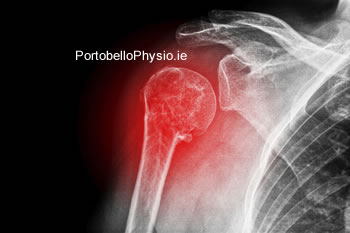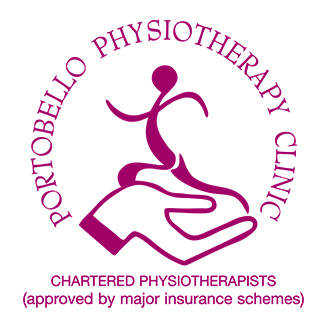Chartered Physiotherapists
Specialists in Musculoskeletal Physiotherapy
Dislocated Shoulder
Acute shoulder dislocations are one of the most common traumatic sports injuries with a high prevalence in contact sports such as rugby and football. They may occur as a result of a forceful blow to the shoulder joint during contact in the tackle or can sometimes occur when a player falls awkwardly on an outstretched arm.

In majority of cases following a traumatic dislocation of the shoulder joint there will be a degree of damage to the labrum (ring of cartilage which surrounds the joints socket) and there may be an associated fracture to either the glenoid rim (socket part of the joint) or head of the humerus (ball part of the joint).
Typically patients will describe a feeling of the shoulder ‘popping out’ at the time of dislocation followed by immediate and severe pain. In cases where the axillary nerve has been damaged there may be reduced sensation down the outside of the arm. Following dislocation of the shoulder joint early relocation is key, once the shoulder joint has been put back in place and any form of surgical repair needed for cartilage or boney disruption has been performed, the patients arm is usually fixed into position by use of a brace for three weeks. Not all dislocations will require surgical input and may be conservatively managed. This will be determined by an orthopaedic specialist.
Post-Operative Treatment
Following the initial three week bracing period the phase of active strengthening work for the shoulder begins. In accordance with the orthopaedic guidelines our Chartered Physiotherapists will progress you through a full and comprehensive shoulder rehabilitation program to help you strengthen and regain stability in the joint and return you back to full function. The expected time to return to sport following a shoulder dislocation is usually four months, and during this period you will have regular physiotherapy in order to progress you back to play.
Ready to take the next step?
Learn more about our Patient-Centered Approach to Care or schedule a new patient consultation.


